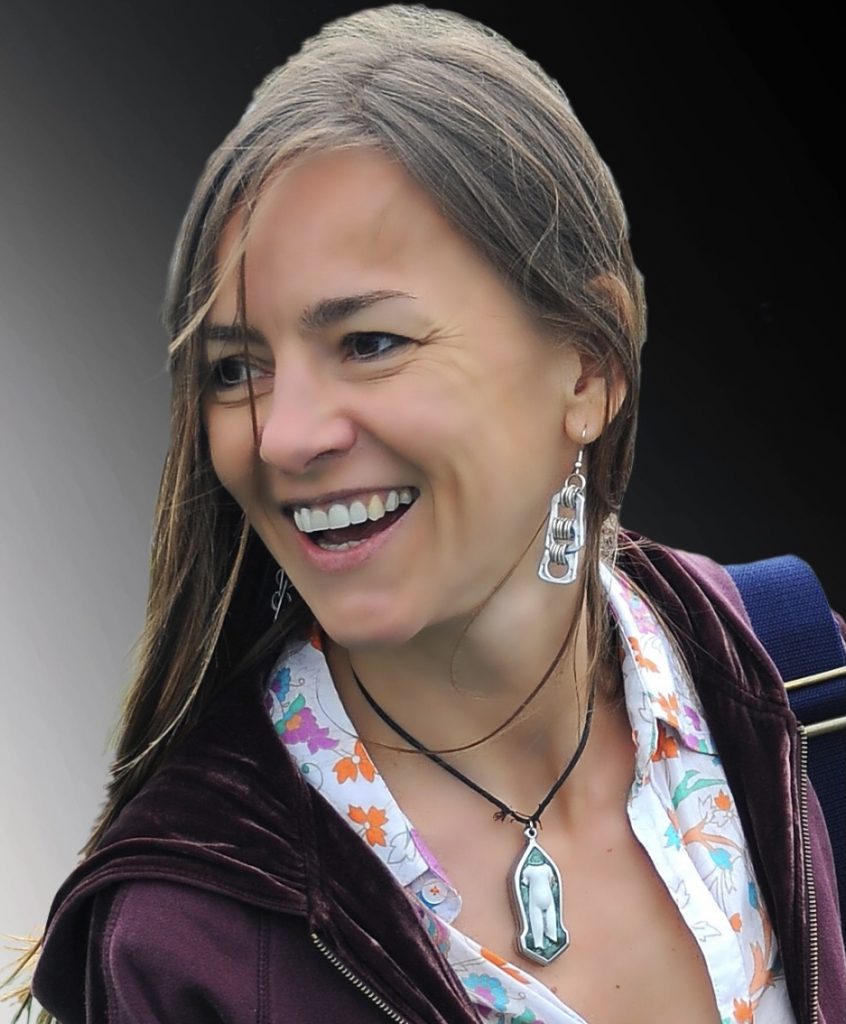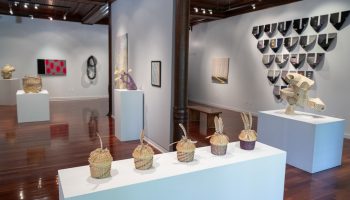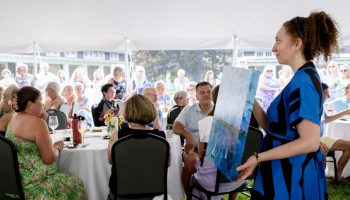
Kaitlyn Finchler
Staff writer
Some poetry forms are forgotten to time, while others are Westernized; to help ancient forms survive and thrive in their own right, poet-in-residence Mihaela Moscaliuc wants to provide Chautauquans with an understanding of the Arabic poetic form ghazal.
Moscaliuc will give her Brown Bag lecture, “Poetic Forms and the Global South: the Ghazal,” for the Chautauqua Writers’ Center at 12:15 p.m. today on the porch of the Literary Arts Center at Alumni Hall.
She said she wants to hone in on the week’s theme, “The Global South: Expanding the Scope of Geopolitical Understanding,” as she did in her Writers’ Center reading Sunday.
Ghazal is “perhaps less known than other traditional forms,” Moscaliuc said. “It’s part of the Islamic literary tradition traced back to seventh-century Arabia, if not earlier.”
As a form of Arabic verse dealing with loss and romantic love and embraced by medieval Persian poets, ghazal consists of syntactically and grammatically complete couplets, with an intricate rhyme scheme, Moscaliuc said.
“The Kashmiri-American poet Agha Shahid Ali, who remained the most devoted practitioner, insisted that in free verse ghazal, American poets have been writing with a contradiction,” she said. “He set out to restore its dignity and publish a theology of ghazals.”
Mosclaiuc is the author of three poetry collections, a translation editor for Plume, and associate professor of English and Graduate Program Director at Monmouth University. In her Brown Bag, she said she hopes the audience takes on the challenge of meeting another culture.
“I’m hoping that the audience will leave having traveled momentarily, led into this other culture and understanding something about it on its own terms,” she said, “as opposed to taking the ghazal and turning it into an American form.”
As she and Michael Waters, the other poet-in-residence for Week Nine, lead their workshop throughout the week, there will be some combined elements between both the lecture and workshop.
“The ghazal provides a different way of approaching music, form and what’s possible in a poem,” Moscaliuc said.
Born and raised in Romania, Moscaliuc didn’t come to the United States until the 1990s, where she wrote her first poem and met her husband, Waters. They often write together, and both take large breaks to work on writing.
“I primarily write in spurts,” Moscaliuc said. “I start most of the poems over the summer and I work very intensely. I try to get away for a couple of weeks and spend 10 to 12 hours a day just writing the poems … completely disconnected from the world.”
Since she teaches full-time during the academic year, Moscaliuc said writing throughout the summer allows her to edit and revise during the school year.
“I think of myself as an immigrant writer,” she said. “It’s a label a lot of poets shy away from, but I don’t ride out of that space between border lines and spaces. Most of my poems traveled back and forth between Romania, while others stayed in the United States.”
Almost a double-life, Moscaliuc said she thinks of her writing as two homes.
“I think of the United States, Romania and Eastern Europe as the two homes instead of two types of consciousness,” she said. “A lot of poems come out of those histories and the cross-pollination of cultures.”




